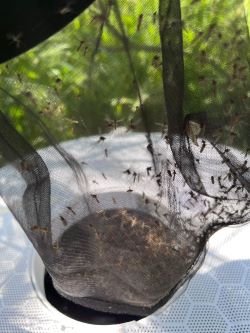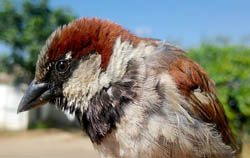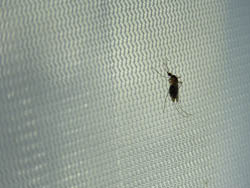
Welcome
Welcome to the official website of the Doñana Biological Station (EBD-CSIC)...

The Doñana Biological Station: EBD-CSIC
The Doñana Biological Station is a public Research Institute belonging to the Spanish Council for Scientific Research CSIC in the area of Natural Resources...

Mission
Our fundamental mission is to carry out multidisciplinary research of the highest standard directed to understanding the way in which biodiversity is generated, maintained and deteriorates, as well as the consequences of its loss...

Our methods
We apply many techniques within a multidisciplinary framework, from molecular genetics to remote sensing, and from modelling to physiological and isotopic analyses...

Monitoring the environment
Monitoring biodiversity at the Doñana Natural Space cover a wide range of communities, including both terrestrial and aquatic organisms...

Aims
Our aims include the study of the ecological and evolutionary processes by combining field work, mathematical and statistical models and physiological and genetic analysis...
 Outstanding
Outstanding
-
 El mosquito común, clave en la transmisión de la malaria aviar
El mosquito común, clave en la transmisión de la malaria aviar -
 Fountains and sewers affect the presence of mosquitoes in urban areas
Fountains and sewers affect the presence of mosquitoes in urban areas -
 Effects of uropygial gland secretion on the host seeking behaviour of mosquitoes
Effects of uropygial gland secretion on the host seeking behaviour of mosquitoes -
 Effects of host sex, body mass and infection by avian Plasmodium on the biting rate of two mosquito species with different feeding preferences
Effects of host sex, body mass and infection by avian Plasmodium on the biting rate of two mosquito species with different feeding preferences
 News
News
Content with tag culex pipiens .
 El mosquito común, clave en la transmisión de la malaria aviar
El mosquito común, clave en la transmisión de la malaria aviar
? The Asian tiger mosquito, an invasive species, does not seem to have a critical function in the transmission of this disease.
 Fountains and sewers affect the presence of mosquitoes in urban areas
Fountains and sewers affect the presence of mosquitoes in urban areas
Results allow understand how these infrastructures affect the population of these insects, which are key to the transmission of several diseases.




